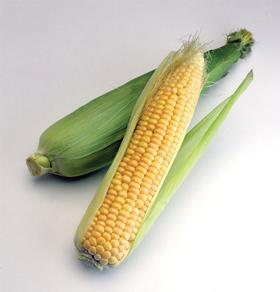
Sales of sweetcorn, quite simply, are on a roll. At a time when price deflation is hitting products right across the fresh produce aisle, sweetcorn is seeing an extraordinary 18.4 per cent value and volume growth, with sales topping £80 million this year [Kantar Worldpanel, 52 w/e 22 May 2016].
Those figures only cover supermarkets too – the growing popularity of street food, alongside ever-expanding chains such as Subway and Nando’s, is giving suppliers a vast range of potential customers and markets to sell into. The versatility of the crop, its increasing use as an ingredient in salads and ready meals, the trend for BBQs and the universal popularity of sweetcorn among young and old are all behind the impressive rise of the yellow vegetable.
Barfoots commercial director Juan-Carlos Leon says suppliers had expected sweetcorn sales to plateau, but they have instead gone though the roof, with formats ranging from twin-packs and cobettes to more unusual offerings such as sweetcorn kebabs with Mexican sauce and butter.
At production level, suppliers are ramping up their output both at home and abroad to meet the surging demand. Barfoots, for example, is increasing its investment in Senegal and has just finished its biggest-ever season with over 30m cobs produced over a six-month period. To handle the greater output, the company added a new line to its packhouse last year, giving it a total of four and a 40 per cent increase in capacity. Barfoots will also begin running night shifts over the next month, and has taken on three additional staff.
Bolstering Senegalese production will help offer a more consistent quality of product when the European season traditionally tails off, Leon explains, which in turn will offer the chance to build sales year-round.
One country set to make a splash and fill the six-week gap before the start of the British season is Hungary. Rush Group began supplying the UK from the central European country last year and is increasing production on the back of a successful trial. “This is the second year and we are aiming to supply in bigger volumes,” explains Hajnalka Erdos, who runs Rush Group’s office in Budapest. “We are very happy to supply the big packers, as well as the wholesale markets.”
Rush Group is sourcing 60ha of sweetcorn in Hungary and is working with young growers to help them bring further volumes of export-quality product on stream. One of the key attractions of Hungarian product, thanks to its climate, is the fact that it is supersweet, which appeals to the British palate.
“There’s still a long way to go, and growers can still be educated further on the quality the UK needs, but we are extending the supply base with the number of growers we are working with,” Erdos says, adding that the company is building long-term relationships with sweetcorn growers in the country, as well as hiring two to three extra staff of its own to underline its commitment.
It’s shaping up to be a very positive picture, and despite a degree of nervousness about the cost of importing following sterling’s nosedive and the impact on domestic production of the National Living Wage, this is a category well and truly on the up.



